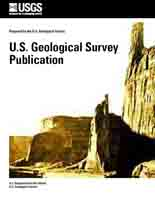
Potential for aquifer compaction, land subsidence, and earth fissures in the Tucson basin, Pima County, Arizona
Links
- Superseding Publications:
- The Publications Warehouse does not have links to digital versions of this publication at this time
- Download citation as: RIS | Dublin Core
Abstract
Suggested Citation
Anderson, S.R., 1987, Potential for aquifer compaction, land subsidence, and earth fissures in the Tucson basin, Pima County, Arizona: U.S. Geological Survey Open-File Report 86-482, 5 maps on 3 sheets ;38 x 29 cm., sheets 102 x 132 cm. and smaller., https://doi.org/10.3133/ofr86482.
ISSN: 2331-1258 (online)
| Publication type | Report |
|---|---|
| Publication Subtype | USGS Numbered Series |
| Title | Potential for aquifer compaction, land subsidence, and earth fissures in the Tucson basin, Pima County, Arizona |
| Series title | Open-File Report |
| Series number | 86-482 |
| DOI | 10.3133/ofr86482 |
| Year Published | 1987 |
| Language | ENGLISH |
| Description | 5 maps on 3 sheets ;38 x 29 cm., sheets 102 x 132 cm. and smaller. |

